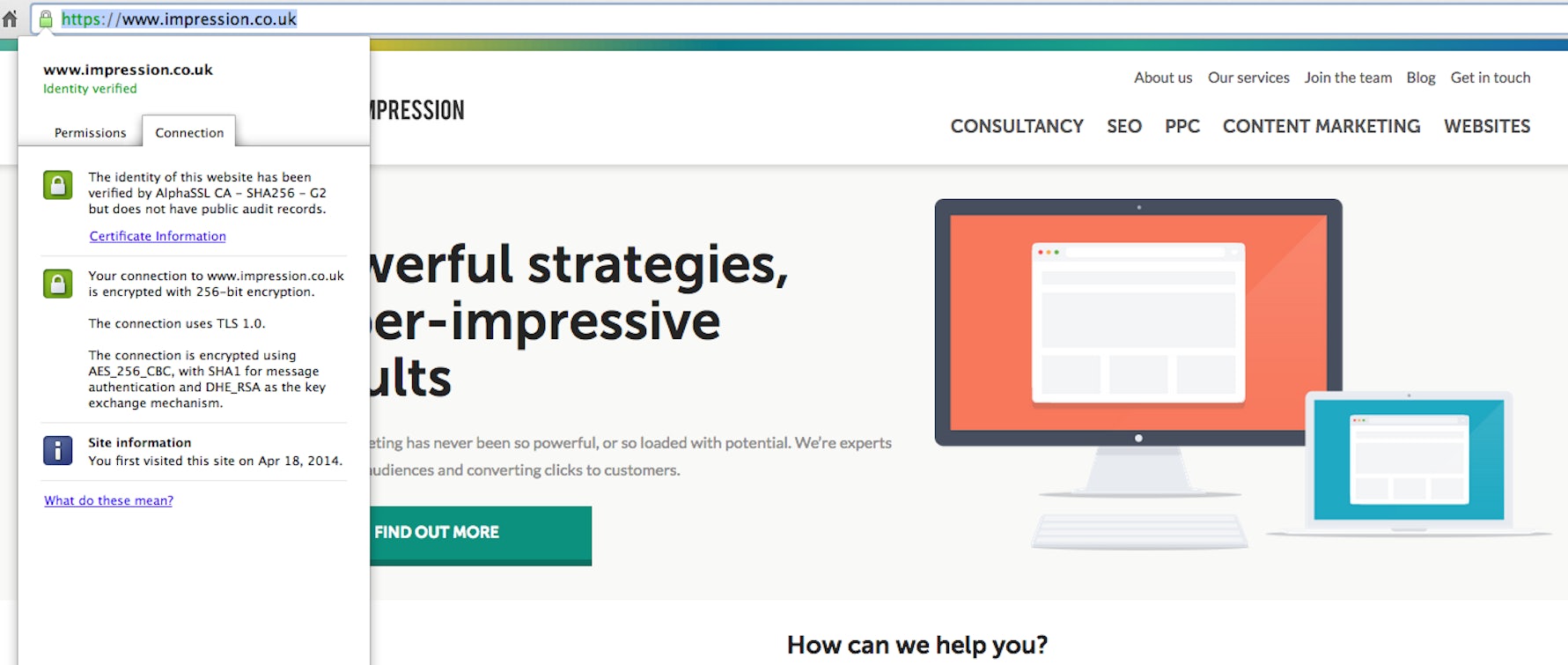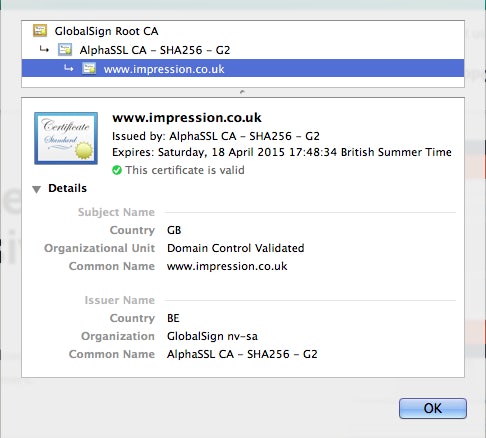Online security has become an increasingly bigger concern over the last couple of years. There is so much data being passed around over the internet, not just financial information but personal details, all of which could be used for nefarious purposes should it get into the wrong hands.
There has been a number of high profile security breaches over recent years, all of which has led to the leak of personal details. Lately, the heartbleed bug has caused many websites to advise their users to change their login details out of fear that their passwords may have been stolen.
What is SSL?
SSL (or secure socket layer) refers to the standard process whereby data is encrypted during communication between the user and your server. The data undergoes asymmetric cryptography to ensure that the data cannot be read by any third parties that may be illegally viewing. By sharing a key between the server and the browser, the user and website may decode the information into an understandable format.
SSL requires the purchase of a certificate annual fee which can cost as little as $50 per year. For cash transactions it is essential but even for personal details such as name, address and phone numbers it is also important.
You can usually tell if a website is SSL compliant by a padlock icon in the address bar. By clicking on it you can see additional details regarding where the certification was gained and the nature of the encryption. In our case, Impression has a 256-bit encryption.
This can take additional time for your web pages to load, nothing too major and certainly not at the expense of security.
Benefits of SSL
Encrypt sensitive information: When data is normally sent across the internet, it can potentially go through any number of computers. Should anyone have access to these machines they will be able to view your data. Through encryption however, you ensure that the data is only visible to the server and the web browser.
You appear more trustworthy to your customers: when navigating to your website, it will become clear to your users that you are SSL certified. When typing your url into the address bar it will show a padlock icon indicating SSL coverage. Immediately this will prove the legitimacy of your website to your users.
PCI compliance: For handling credit card information your website must be PCI compliant. Before you gain this however, you must first gain SSL certification.
Reduce phishing scams attributed to your site: Having SSL will make it difficult for attackers to use your site as a platform for their phishing scams. Since SSL certification requires correctly identifying yourself as an organisation, it is harder for scammers to gain certification.
For a small business SSL certification will give your users more peace of mind. They will connect with you, safe in the knowledge that you are a genuine and professional organisation who has its customer’s best interests in mind. SSL should be a priority for all small businesses, making their online business more secure for new and repeat business.




